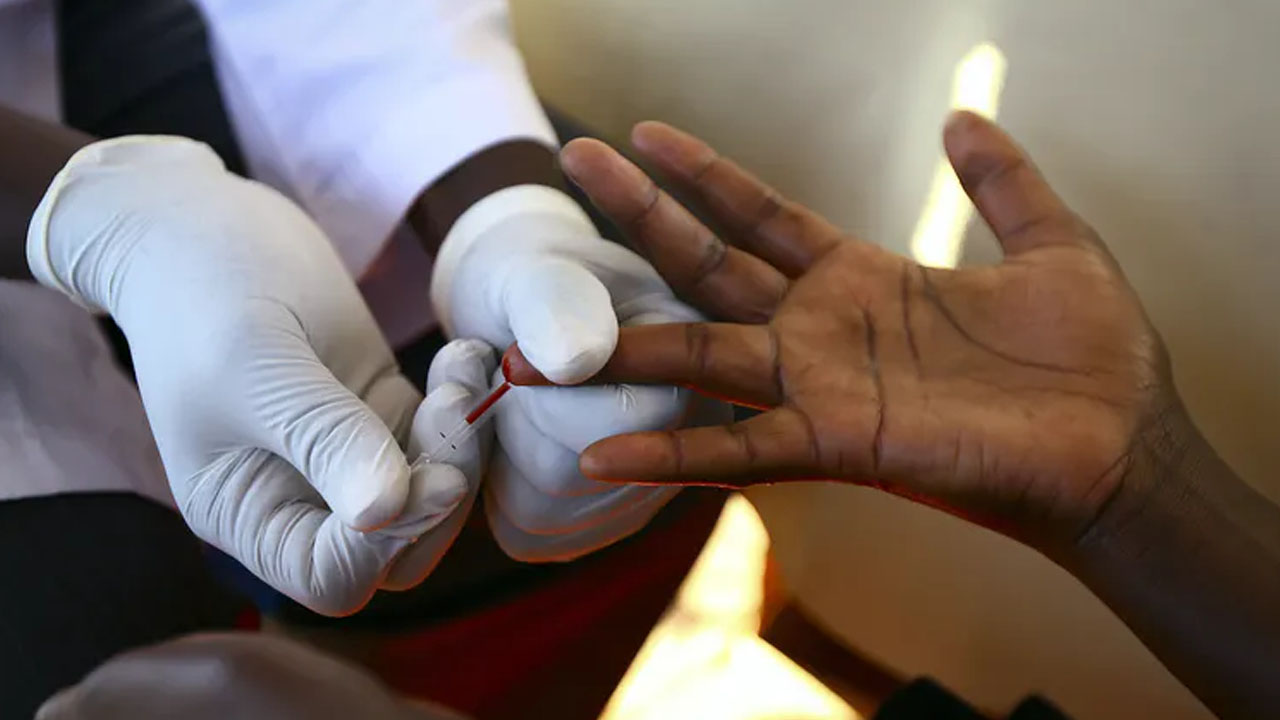
The focus of the HIV/AIDS national workplace policy is to ensure a safer and more productive workplace while implementing fair employment practices and fostering community involvement in the workplace, the Minister of State, Labour and Employment, Nkeiruka Onyejiocha, has said.
Delivering a keynote address on the commemoration of the 2023 World AIDS Day and the launch of the national workplace policy on HIV/AIDS held in Abuja, the Minister of State stated that the launch of the National Workplace Policy on HIV/AIDS is a momentous milestone in government’s commitment to establishing workplaces that transcend mere spaces of employment.
“This policy stands as a comprehensive framework recognizing the unique role workplaces play in the lives of individuals and communities. As we unveil this policy, let it be a beacon of hope and a symbol of our unwavering dedication to the well-being of and a symbol of prosperity of our nation.
“I call upon employers, employees, trade unions, and stakeholders to wholeheartedly embrace and diligently implement this policy. Together, let us champion a workplace culture that stands resolute against the scourge of HIV/AIDS. Behind every case of HIV/AIDS lies a human story of resilience, courage, and hope. It is our collective responsibility to create workplaces that not only protect but empower individuals living with HIV/AIDS to lead fulfilling lives,” she said.
She observed that the theme ‘Let communities lead’, encapsulates the essence of collective endeavours. Onyejiocha declared that the launch of the National Workplace Policy on HIV/AIDS is a robust framework designed to fortify the communities and instill within the workplaces a culture of inclusivity, compassion, and collective responsibility.
According to her, the theme emphasizes the crucial role that the leadership and resilience of diverse communities play in the joint efforts to address the challenges posed by HIV/AIDS.
“This year’s theme calls for a change in basic assumptions in our approach to the HIV/AIDS response. It recognizes that communities are not passive recipients but pivotal leaders in the fight against the pandemic. By empowering communities, we fortify the foundation of our response and chart a more resilient and sustainable path forward.”
On her part, the Director, ILO Office for Nigeria, Ghana, Liberia, Sierra Leone and Liaison office for ECOWAS, Dr Vanessa Phala, commended the Federal Ministry of Labour and Employment for the pivotal role it continues to play to strengthen the HIV Workplace response through the development and implementation of the National HIV workplace policy and the ongoing partnerships with the National Agency for the Control of AIDS (NACA).
While congratulating Nigeria on the milestone achieved so far, Phala stated that the revised policy reflects recommendations and guidelines from global best practices for prevention, treatment, and care services such as the test and treat strategy and HIV self-testing whilst also taking cognisance that Occupational safety and health is now a fundamental principle and right at work.
She revealed that the world of work and the individuals and communities associated with it represent the single largest group of people living with HIV in the world.
According to her, the number of people living with HIV in the workforce has continued to increase and is estimated to have reached 29.9 million globally.
Additionally, loss earnings attributable to HIV/AIDS – because of death or inability to work – are projected to surpass $7 billion as of 2021.
The world of work therefore offers significant opportunities and advantages as a key venue where those most affected by the epidemic can access HIV services. It also provides a platform for reaching those affected in all sectors, at all levels including women and men in the public and private sector and the informal economy, their families, dependents, and local communities,” Phala stated.
She was quick to add that whilst the workplace provides a livelihood and the hope of a decent future, it can also be a source of vital, lifesaving information on HIV prevention and treatment, care and support services to workers in their struggle with HIV/AIDS.
“For some workers, there is a darker side not only must they live with HIV, but they may also face stigma and discrimination from employers and fellow workers and where discriminatory attitudes are widespread, those already employed may live in constant fear of disclosure of their HIV status or of losing their sources of income due to that status. They may also face challenges in accessing HIV prevention information or treatment and for others living with HIV, even finding a job may be impossible due to stigma and discrimination,” the ILO director said.
In his goodwill message, Director General of the Nigeria Employers Consultative Association (NECA) Adewale Smatt-Oyerinde, said the joint efforts of the Ministry, ILO, and the unwavering partnership of social partners underscore a shared commitment to establishing a work environment in Nigeria that not only recognises the impact of HIV/AIDS but also takes proactive steps to address it.
He further noted that it is indeed imperative to acknowledge the pivotal role workplaces play in the fight against HIV/AIDS. He noted that the National Workplace Policy plays a vital role in creating a supportive atmosphere for those affected and bolstering prevention efforts.





![SPIE_PHRC_SOLAR_PV[1]](https://cdn.guardian.ng/wp-content/uploads/2025/05/SPIE_PHRC_SOLAR_PV1.jpg)
